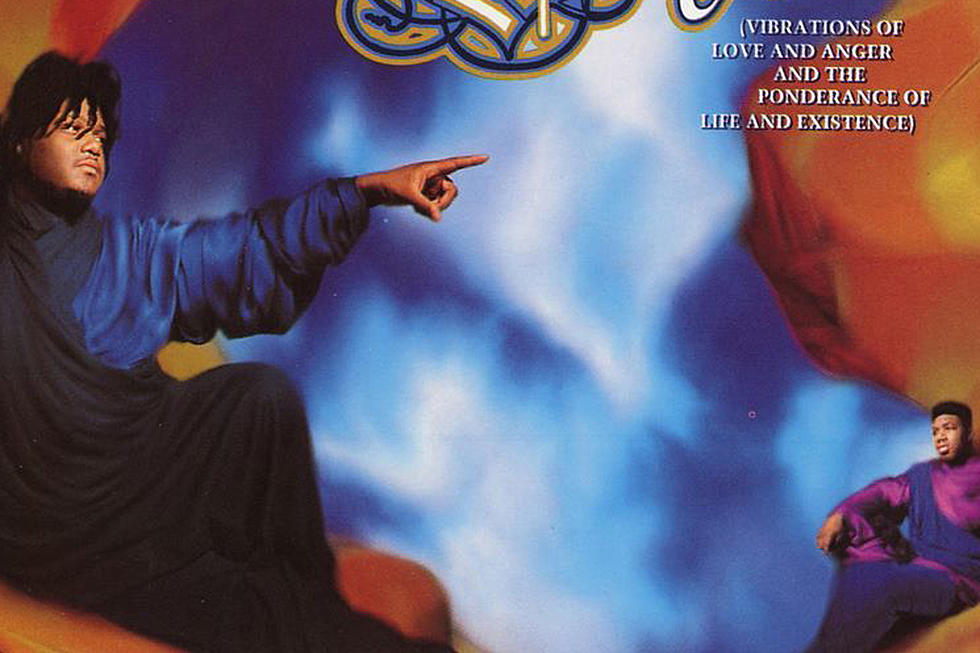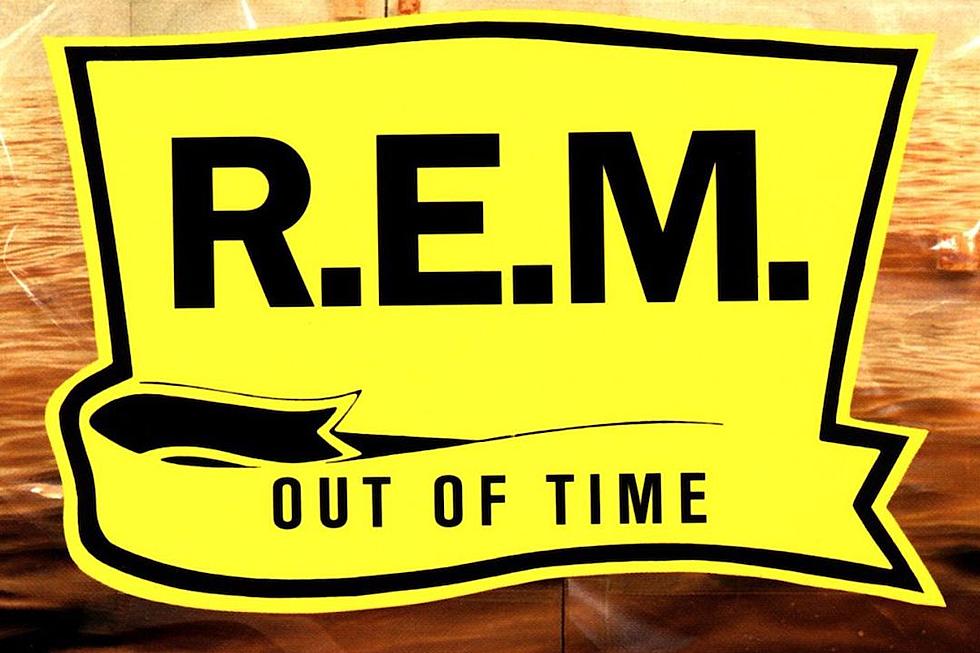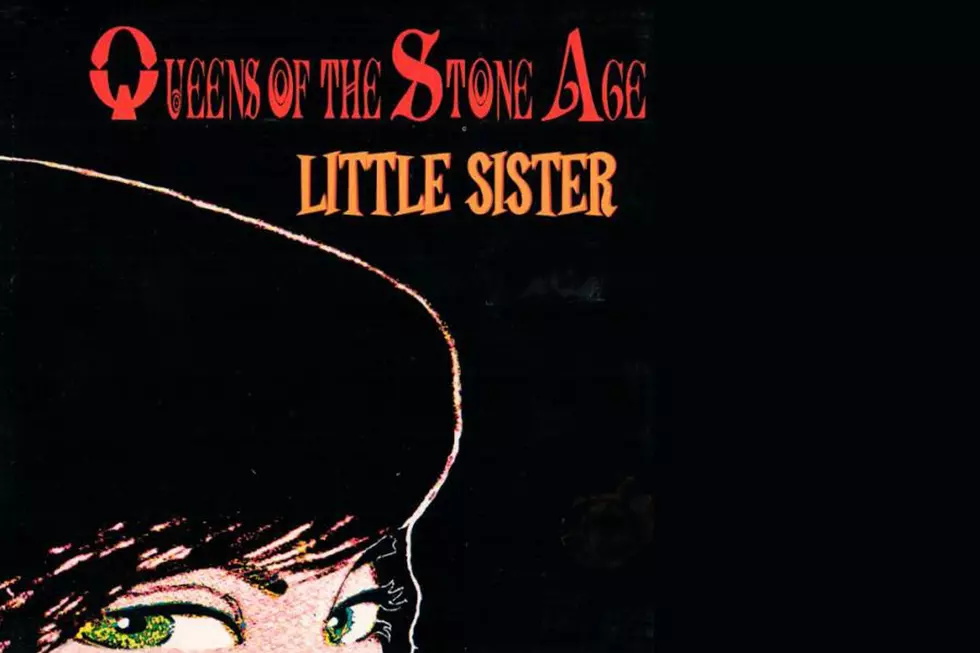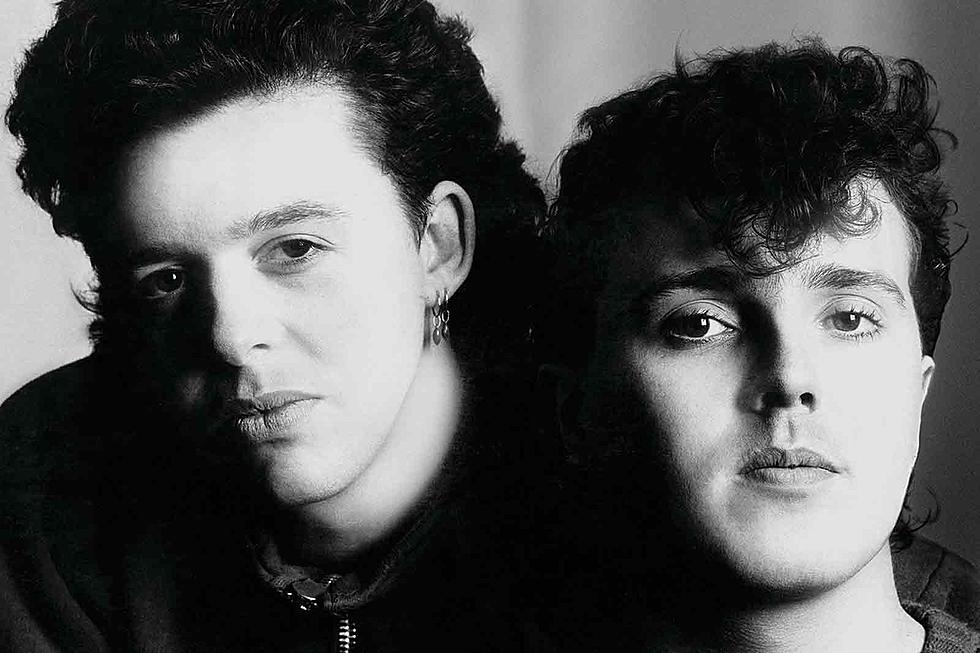
25 Years Ago: P.M. Dawn Claps Back at Haters on ‘The Bliss Album?’
P.M. Dawn let it be known right out of the gate that they weren’t a typical rap outfit. The New Jersey-based rap duo first captured hearts in 1991 with their single “Set Adrift on Memory Bliss," which became the first song by a black rap act to top the Billboard Hot 100 thanks, in part, to its use of a chunky sample of Spandau Ballet’s blue-eyed soul smash “True." Its follow-up, “Paper Doll," reached the Top 40 and their first album, Of the Heart, of the Soul and of the Cross: The Utopian Experience was certified gold.
In contrast to the louder, more aggressive vocal style used by rappers like Public Enemy and N.W.A. at the time, Prince Be whispered his rhymes and occasionally took a break from rapping to sing. Their languid, esoteric sound (which also included Prince Be’s brother DJ Minutemix) caused no shortage of consternation from the hardcore hip-hop community.
That hostility was exacerbated when Be called out several rappers in a Details magazine interview. One of the rappers Prince Be targeted was hip-hop’s self-proclaimed “teacher," KRS-ONE. After Prince Be mused, “KRS-ONE wants to be a teacher, but a teacher of what?” he found himself the unwitting victim of a beatdown. During a birthday party for MTV personality T-Money, KRS and his crew literally tossed Prince Be from the stage during a P.M. Dawn set. The assault further alienated P.M. Dawn from hip-hop’s center.
Undeterred, Be and Minutemix continued to tour while also getting set to work on their second album. In the summer of 1992, P.M. Dawn scored their third hit with the ballad “I’d Die Without You,” which appeared on the multi-platinum soundtrack to the Eddie Murphy/Robin Givens film Boomerang, and landed in the pop Top 5. Unlike the duo’s first two hits, “I’d Die Without You” contained no rapping at all, and its success indicated that P.M. Dawn was a uniquely versatile act.
In March 1993, P.M. Dawn officially kicked off their sophomore campaign with “Looking Through Patient Eyes." Its sound had immediate familiarity to anyone who’d enjoyed “Set Adrift on Memory Bliss." Much like their initial hit, “Patient Eyes” quoted Joni Mitchell (with the line “help me, I think I’m falling”) and leaned heavily on a sample from an ‘80s hit by a blue-eyed soul performer. George Michael’s 1988 chart-topper “Father Figure” provided the musical underpinnings. P.M. Dawn repaid the favor to Michael later that year when they remixed his medley of Adamski’s “Killer” and the Temptations’ “Papa Was a Rolling Stone."
“Looking Through Patient Eyes” was another smash, peaking at No. 6 on Billboard’s Hot 100 and topping the charts in Canada. Two months after the single release, The Bliss Album? (Vibrations of Love and Anger and the Ponderance of Life and Existence) hit stores. The album’s title was a nod towards P.M. Dawn’s breakthrough single. The pointed question mark appeared to reference this album’s somewhat weightier, more downcast lyrics.
Prince Be obliquely referenced the KRS-ONE incident with “Plastic," which addressed talk about him being a sellout and not knowing hip-hop over production that had more of a hardcore hip-hop vibe than P.M. Dawn’s previous material. “The Nocturnal Is in the House,” which also appeared on the soundtrack to the Chris Rock rap parody film CB4, had a similar vibe. Those songs provided an additional layer of versatility to an album that was already packed with artistic left turns. A toughened-up cover of the Beatles’ “Norwegian Wood” was a particular highlight. Heads were also turned by the piano ballad “More Than Likely," a duet with yet another British blue-eyed soul artist, Boy George. “I’d Die Without You” also made an appearance at the album’s conclusion.
Reviews of The Bliss Album? were uniformly rapturous, with Spin going as far as to call Prince Be “Black music’s answer to Brian Wilson.” More critical acclaim followed in early 1994, when The Bliss Album? was voted 1993’s 12th best album in the Village Voice’s highly regarded Pazz & Jop survey of music critics. In terms of sales, The Bliss Album? peaked at No. 30 on the Billboard 200, marking the highest album chart ranking of the duo’s career. On June 1, 1993, the record was certified gold.
Commercially, things began to go downhill from there. 1995’s alternative rock-focused Jesus Wept didn’t crack the top 100, and a fourth album didn’t chart at all. The group began to fracture as well. DJ Minutemix was involved in a sex scandal involving a family member and was ousted from the group. Meanwhile, Prince Be had dealt with health issues from the beginning of P.M. Dawn’s career. His struggle with diabetes curtailed P.M. Dawn’s career, and he suffered a series of strokes in the early part of the 21st century, followed by the amputation of a leg and blindness. The MC/singer ultimately succumbed to renal failure in the summer of 2016.
While P.M. Dawn puzzled fans of hip-hop and pop music during their heyday, the duo has proven to be highly influential in the 21st century. It’s nearly impossible to listen to Kanye West’s mostly-sung, confessional 808s and Heartbreak album or the entirety of Drake’s catalog without hearing remnants of Prince Be. More explicitly, singer Brandy and rapper/singer Childish Gambino have both recorded covers of “I’d Die Without You." A slew of artists who both rap and sing with an introspective and sensitive sensibility have emerged recently, and they all owe a debt of gratitude to P.M. Dawn.
More From Diffuser.fm









